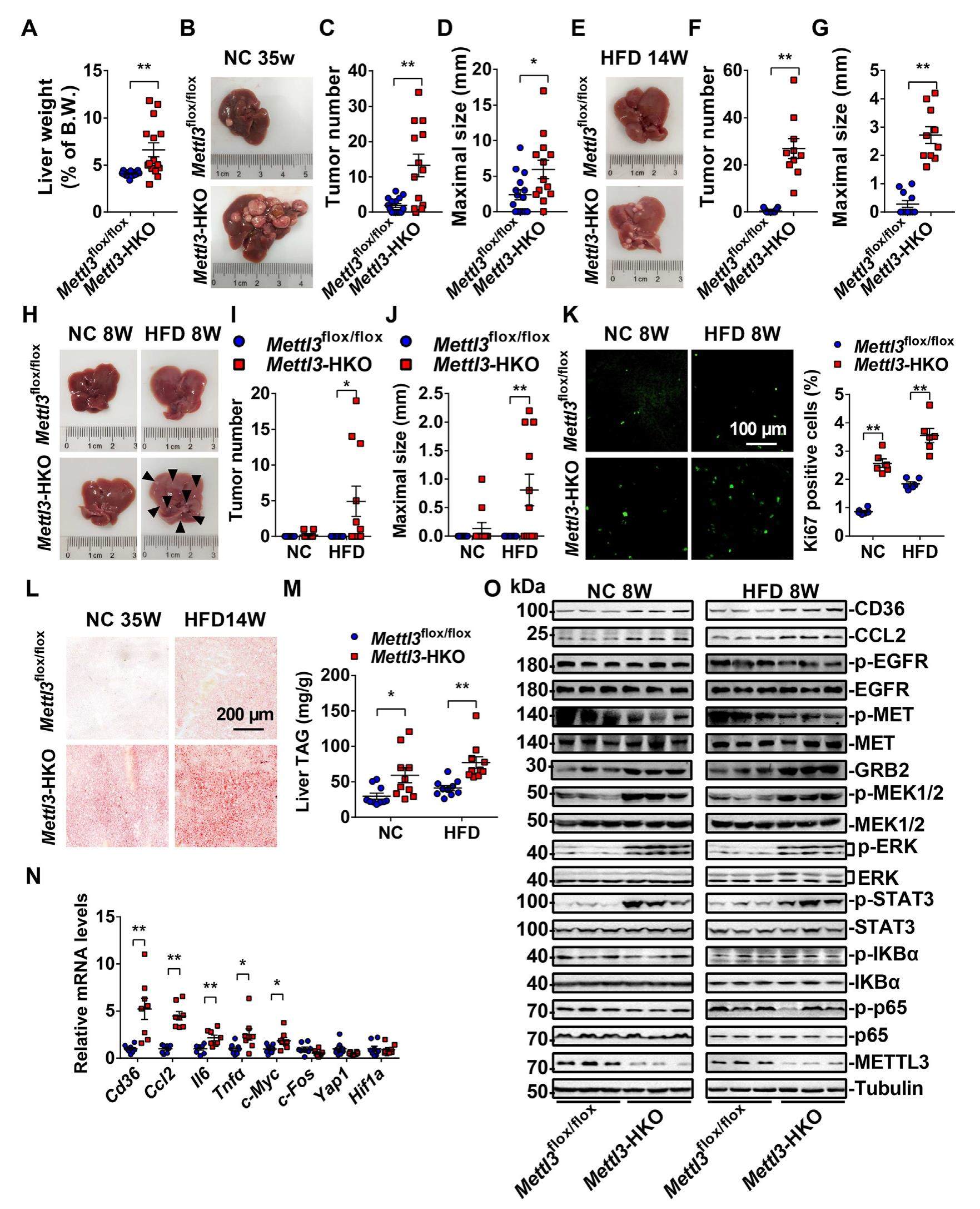
Hepatocyte-specific deletion of Mettl3 promotes hepatocellular carcinoma in mice


Hepatocellular carcinoma (HCC) is a key cause of morbidity and mortality, which is a global health problem. Elucidating the molecular and cellular mechanisms of HCC progression is helpful to find either early markers for diagnosis or novel drug targets for drug development. Some evidence showed that methyltransferase like 3 (METTL3), a central methyltransferase of the epi-transcriptomic complex that catalyzes m6A mRNA modifications, is associated with HCC. Based on the data collected from HCC cell lines and nude mouse models in which METTL3 was modulated, researchers concluded that METTL3 promoted the pathogenesis of HCC, and indicated that inhibition of METTL3 might be an effective approach for HCC treatment. However, the HCC cell lines and nude mouse models are not the ideal tools because they do not really reflect the function of METTL3 in the pathogenesis of HCC in vivo. The in vivo function of METTL3 in the pathogenesis of HCC by using a hepatocyte-specific Mettl3 knockout (Mettl3-HKO) mouse model is largely unknown.
